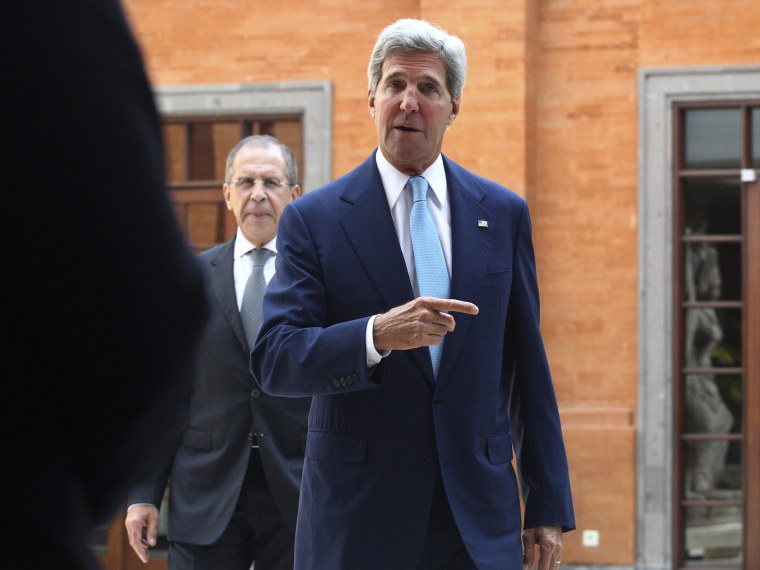When congressional Republicans shut down the federal government with no plan or strategy, the damage extended beyond just domestic politics. It's already undermined U.S. foreign policy and led much of the world to marvel at the ineptitude of the American system.
Secretary of State John Kerry explained, "I believe that those standing in the way (of a resolution) need to think long and hard about the message that we send to the world when we can't get our own act together."
But in recent days, the international mockery over the shutdown has turned to something else:fear over the debt ceiling.
The bitter fiscal stalemate in Washington is producing nervous ripples from London to Bali, with increasing anxiety that the United States might actually default on a portion of its government debt, set off global financial troubles and undercut fragile economic recoveries in many countries.Five years after the financial crisis in the United States helped spread a deep global recession, policy makers around the world again fear collateral damage, this time with their nations becoming victims not of Wall Street's excesses but of a political system in Washington that to many foreign eyes no longer seems to be able to function efficiently.
I get the feeling that congressional Republicans don't invest much effort in thinking about the United States' role in the world or how best to position the nation for international competition in the 21st century. So let's make this plain: the U.S. economy is the largest in the world by a wide margin. For generations, global investors have seen the United States has the safest bet on the planet because of the strength and stability of our economic system and political process.
We've been on top, in other words, and for quite a while there was an assumption that our role as the superpower wouldn't change. And because of that, global markets became dependent in part, if not intertwined, with the health of the U.S. economy -- leading to jokes such as, "When the American economy sneezes, the world catches a cold."
But now that the United States is contemplating a sovereign debt crisis -- not because we lack the resources, but because of the profound stupidity of some in our legislative branch -- people around the planet have reason to ask themselves questions they never had to ask before: has right-wing fanaticism made the U.S. a bad bet? Why should the world suffer because some American policymakers no longer feel like paying the nation's bills?
From the New York Times piece:
"The international community is asking, 'Does the U.S. still have the will to act?' " said Xenia Dormandy, a senior fellow at London's Chatham House and a former American official in the State Department and the National Security Council under President George W. Bush. [...]Alain Frachon, a columnist and former Washington correspondent for the French newspaper Le Monde, said, "Washington is looking more like the Italian political system, with its permanent crises, and not a presidential system, as before.""People are worried about the debt ceiling -- it could be the little drop that could trigger another crisis in financial markets," he said. "And it's just when there was the perception for the first time in the long sovereign debt crisis that there is a window of opportunity to breathe a little bit, and to introduce a bit more suppleness into the way we've managed it."The anxiety is all over Europe, Mr. Frachon said, and it comes just as Greece and Spain seem to be turning around, as there are spurts of growth that promise an end to recession, and as Germany has gotten through its elections and Rome through another political crisis. Another financial meltdown would hurt France, too, he said, not just Greece, Portugal and Spain."People don't want to see all this fragile equilibrium destabilized by a possible financial crisis provoked in Washington," he said.
When we talk about radicalized lawmakers' willingness to start hurting people deliberately unless their demands are met, let's not forget that we're not just talking about Americans.
